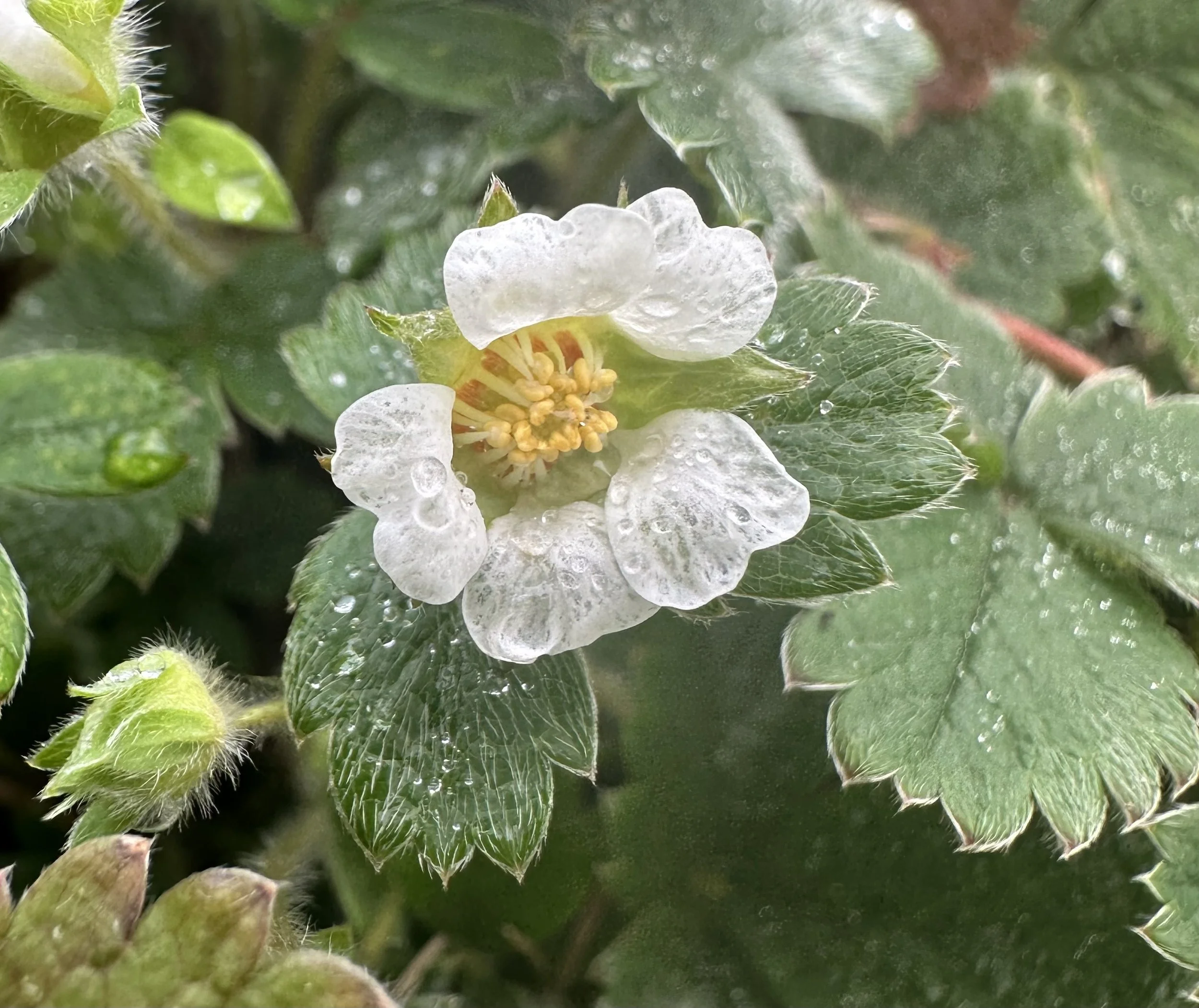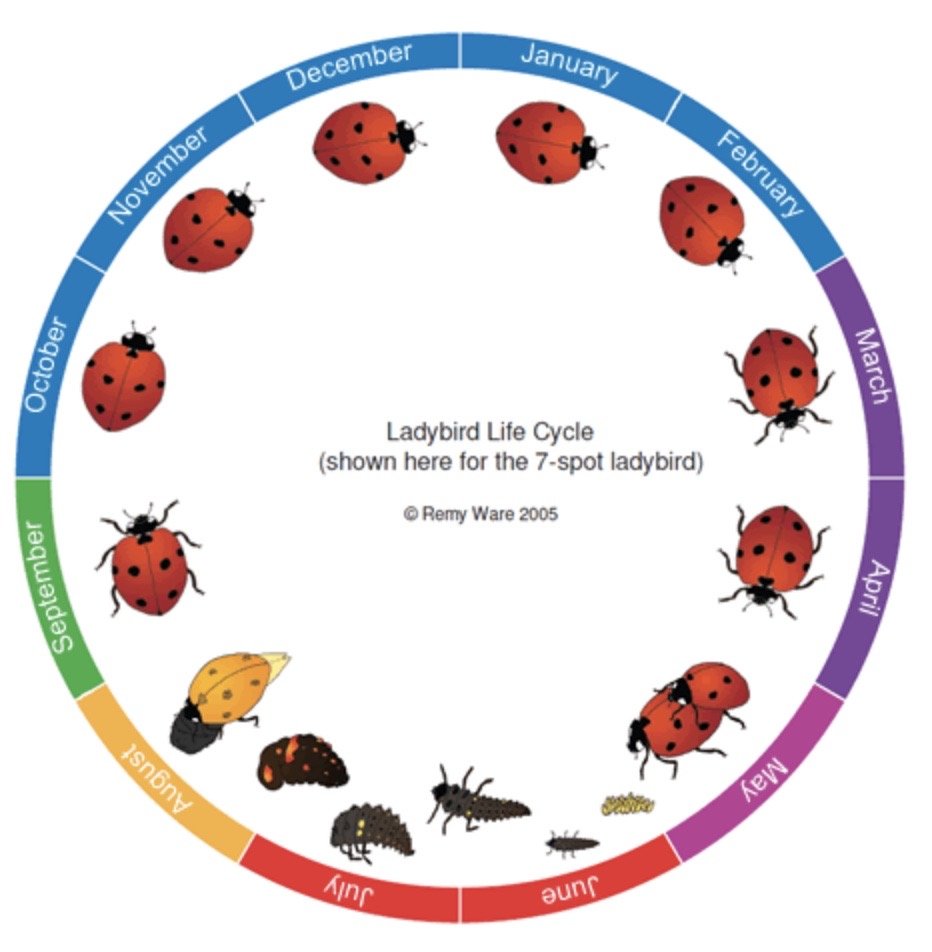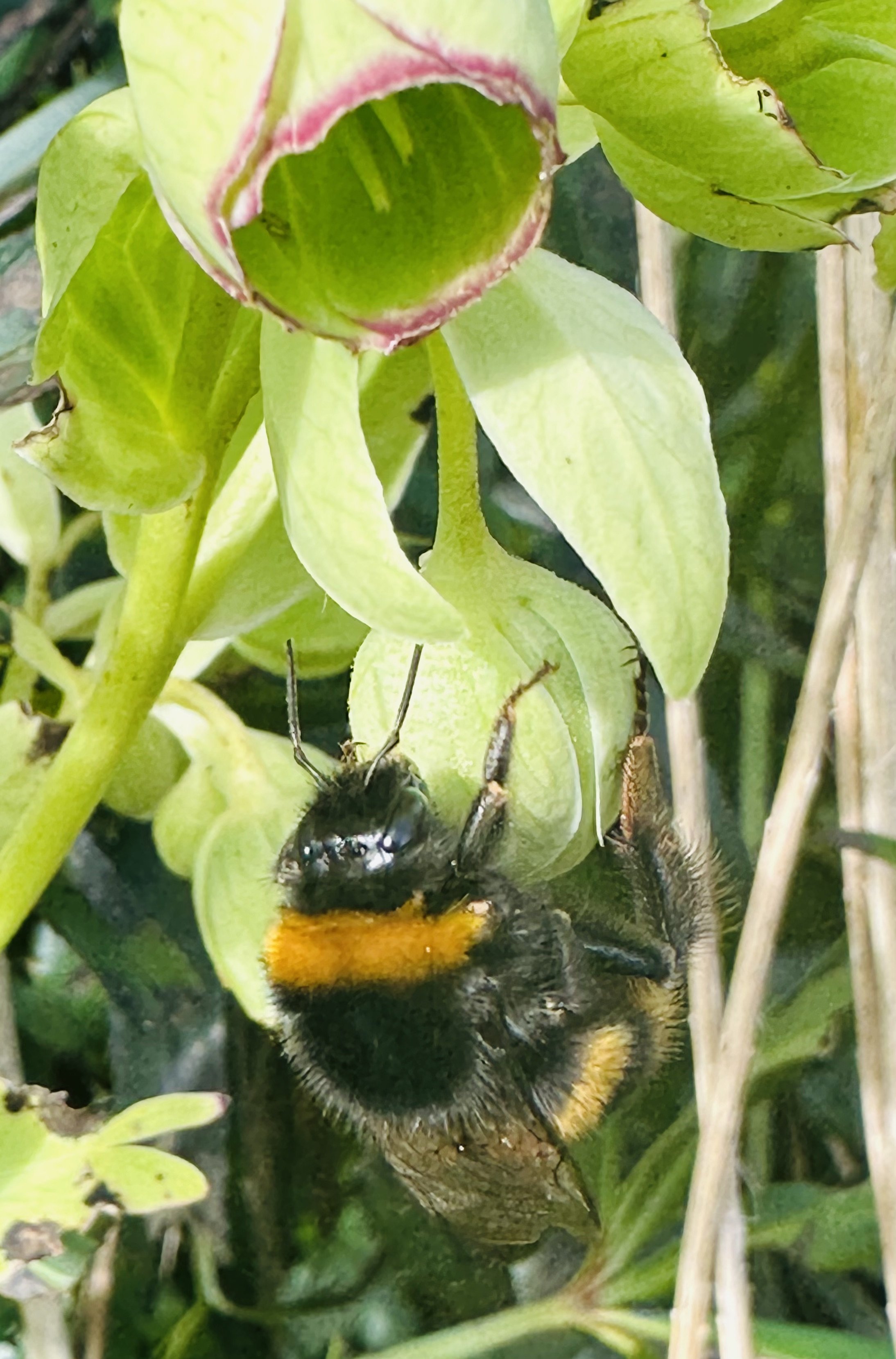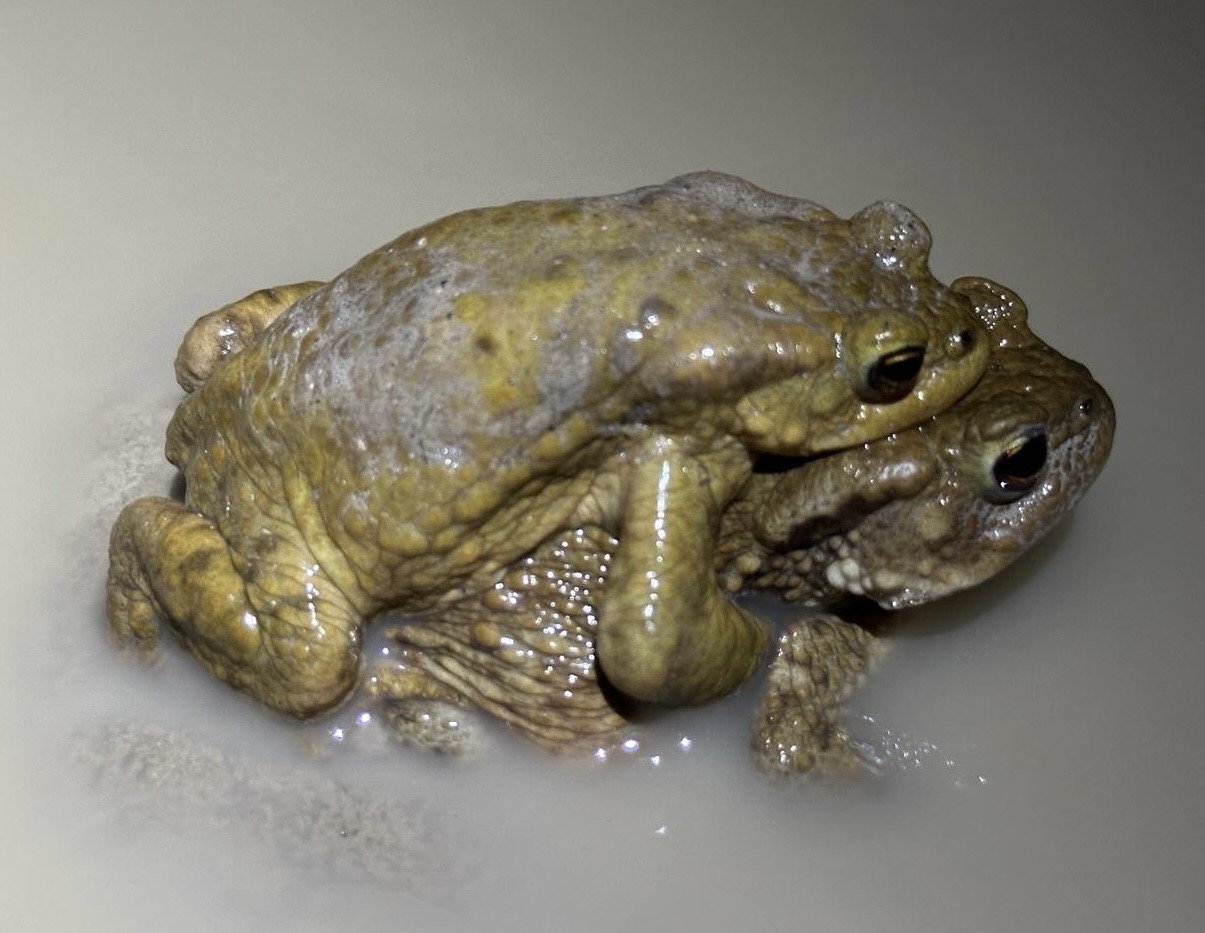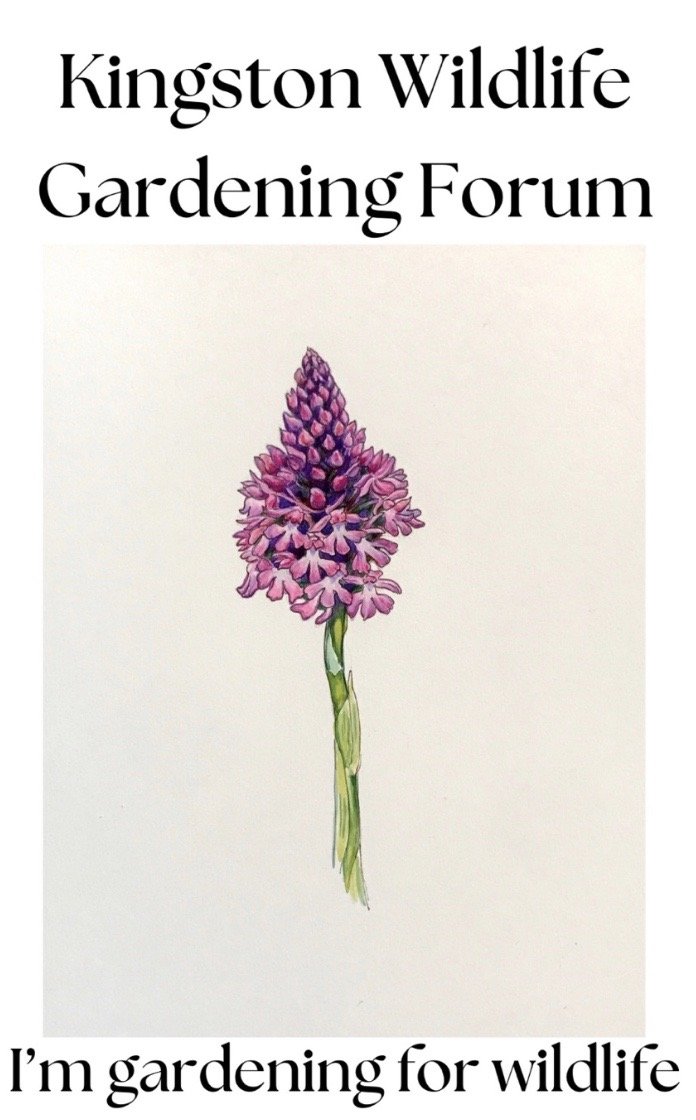March Newsletter
I’m so looking forward to lighter evenings when the clocks go forward on 31st March! It’s still very wet and soggy at Chalkhill but spring is definitely underway. It’s the spring equinox next Wednesday (20th March) marking the start of astronomical spring. Here are some of the flowers in bloom at Chalkhill today: Primroses, Wild Strawberry, Primrose, Forget-me-not, and Red Dead nettle.
Ladybirds
I’ve been thinking about Ladybirds recently as I’ve noticed them starting to get more active, looking for food after overwintering. Ladybirds are a sub-group of beetles, and while there are 46 different species in the UK only 26 look like classic ladybirds. Ladybirds live for about a year, they overwinter in cracks, crevices and dead vegetation so providing these in your garden is important for ensuring there are plenty of ladybirds the following year. Ladybirds eat aphids so are definitely a gardener’s friend.
Queen bees
Also getting active in the garden now are the queen bees. You may have noticed particularly large bumblebees buzzing around. These are queen bees, the only survivors of their colony from last year, who have emerged from hibernation to establish a new nest. At Chalkhill the Grape Hyacinths and Stinking Hellebore have been proving very popular with the bees who need to fill up with nectar after their long hibernation to provide them with energy to find a new nest.
A buff-tailed bumble bee on Stinking hellebore
Mating Toads
Around Valentine Day in Kingston there was quite a toad love-in. At this time of year frogs and toads head to ponds to mate and spawn. There's a large pond at the end of my road which is frequented by toads. A near neighbour had the brilliant idea of organising Toad Safaris. Each evening, for a week, villagers watched and assisted over 200 toads reach the pond in safety. Mating toads don’t look very romantic as male toads wrestle rivals for the females.
Common toad spawn is laid in strings, unlike frog spawn which is in clumps. If you have a pond but no toads or frogs don’t be tempted to introduce spawn from elsewhere. As Froglife explain this can spread disease and invasive species. If no breeding adults appear in your pond, there may be other juveniles in the area that will turn up next year. After 3 years the pond at Chalkhill still has no spawn but I am optimistic that when conditions are right, they will come.
We normally associated toads (and frogs) with water, though they actually spend most of their lives on dry land. They can be found in fields, hedgerows, gardens and woodlands. Toads eat worms, slugs, spiders, beetles and other small invertebrates. They hunt at night and rest in the same hiding place each day.
So while garden ponds are important stepping-stones for amphibians their terrestrial habitats are just as important. Even if you don’t have a pond your garden is almost certainly supporting amphibians.
A Rewilding Gardener's Diary
The biggest job this month was pruning the fruit trees. With 16 apple trees and a few pears the job's too big for me so Mark from Sussex Fruit Trees came for the day. The plums need to wait until later in the Spring. I’m planning to expand the deadhedges wit the apple tree prunings.
Spanish bluebells cause me a big headache here. They were here when we moved in and obviously find the conditions perfect as they multiple in profusion. They look striking when in flower and the pollinators love them but I don’t want them here as they are hybridising with the few English Bluebells there are and they outcompete everything. So I’ve been systematically pulling them up to try and at least contain them.
Last year I introduced some Snowdrops into the lawn, planting them “in the green”. Last month they looked fabulous so when I found more plants for sale cheaply on the plant stall in Kingston I snapped them up and have planted more.
I’ve also been enjoying the bank of primroses which have increased as a result of me dividing the bigger clumps after they had finished flowering last spring.
Finally, I’ve been tidying up the herb garden, weeding, mulching and cutting back last years dead growth ready for new growth this year. The mint, parsley and lemon balm are already coming through, and the rosemary is still in flower.
Kingston Wildlife Garden Forum
In Kingston, where I live, we've been busy setting up the Kingston Garden Wildlife Forum. We are trying to encourage everyone in the community to garden with wildlife in mind and to signpost gardeners to helpful information. This Saturday 16th March at 3.30pm in Kingston Parish Hall we are putting on a free talk by Michael Blencowe about the Wildlife in his Garden. If you’re local, please come!
Thanks for reading
If you'd like to find out more about Chalkhill Rewilding’s services take a look at my website, email for more information or WhatsApp me on 07957 170015. And please feel free to forward my details to any of your friends and neighbours you think may be interested in making their gardens wilder. Click here to subscribe to this newsletter.


